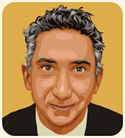Who’d have guessed it?
When Brazilian President Luis Ignacio Lula da Silva and U.S. President Barack Obama meet on March 14th, one of the top items on their agenda will be free trade—pushed by the former labor leader President Lula. This is the same President that, when elected, roiled markets due to investor fears that he would reverse the sound macroeconomic policies of the past decade. It is the same Lula who, in the WTO negotiations in Cancun, led a group of developing countries to demand market access concessions that led to the acrimonious collapse of the negotiations. Now that same President is preaching the need to avoid protectionism in the midst of the crisis.
It couldn’t come at a better time or from a better messenger.
First, the timing. Increasingly, serious observers are worried about the potential for a free trade backlash. We have already seen it in the U.S. with the insertion of the counterproductive “Buy American” provision of the $800 billion stimulus plan—with the ridiculous caveat that it should not violate U.S. trade agreements.
(Do we really expect the mayor of say, Des Moines, to check whether the non-competitive contract to a local concrete company that he awards violates WTO provisions or NAFTA? Let’s get real. If we don’t want to break our existing trade agreements and want to set an example for future liberalization, then we should avoid this absurd posturing all together. Moreover, President Obama should be willing to use his bully pulpit to speak out about it.)
The Carnegie Endowment director of International Economics program recently urged world leaders to take action to avoid a trade war. He cites evidence that 70% of trade measures enacted since November 2008 have been to restrict trade. Russia has increased tariff barriers on cars and farm machinery. The EU now subsidizes dairy projects, and steel tariffs have increased in the EU, India and Brazil.
And now the man. President Lula has the ideological and historical credibility to make the case for how free trade, especially now, is essential to restoring economic growth. A former lathe operator who never graduated high school, Lula made his name in the 1980s as a labor activist and defender of workers’ rights against a military government. Since he’s come to power, he’s overseen a 20% growth of Brazil’s middle class, while also pushing for a trade agenda that serves the interests of development. But most important, he’s willing to say it loudly and proudly, as he did in a recent Financial Times op ed.
As he says in the piece “The future of human beings is what matters.” Indeed. And ensuring that the countries don’t shutter their economies and close off their people’s potential for growth is key to that. Let’s hope our own President and the members of the G20 that will meet April 2nd will stand up and do something.





